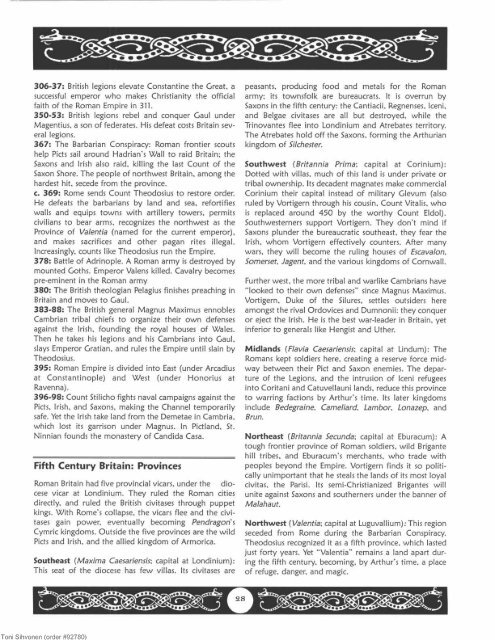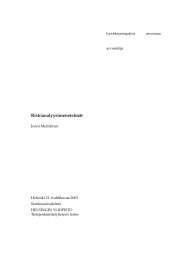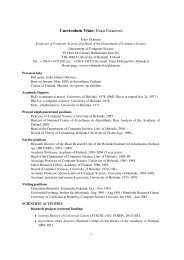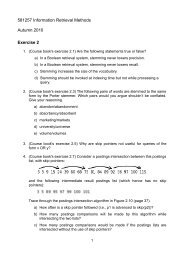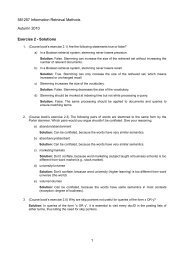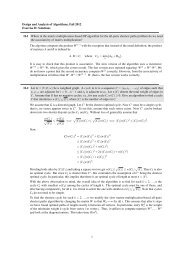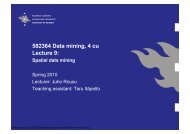Toni Sihvonen (order #92780) 62.142.248.1
Toni Sihvonen (order #92780) 62.142.248.1
Toni Sihvonen (order #92780) 62.142.248.1
You also want an ePaper? Increase the reach of your titles
YUMPU automatically turns print PDFs into web optimized ePapers that Google loves.
<strong>Toni</strong> <strong>Sihvonen</strong> (<strong>order</strong> <strong>#92780</strong>) 6<br />
306-37: British legions elevate Constantine the Great, a<br />
successful emperor who makes Christianity the official<br />
faith of the Roman Empire in 311.<br />
350-53: British legions rebel and conquer Gaul under<br />
Magentius, a son of federates. His defeat costs Britain several<br />
legions.<br />
367: The Barbarian Conspiracy: Roman frontier scouts<br />
help Picts sail around Hadrian’s Wall to raid Britain: the<br />
Saxons and Irish also raid, killing the last Count of the<br />
Saxon Shore. The people of northwest Britain, among the<br />
hardest hit, secede from the province.<br />
c. 369: Rome sends Count Theodosius to restore <strong>order</strong>.<br />
He defeats the barbarians by land and sea, refortifies<br />
walls and equips towns with artillery towers, permits<br />
civilians to bear arms, recognizes the northwest as the<br />
Province of Valentia (named for the current emperor),<br />
and makes sacrifices and other pagan rites illegal.<br />
Increasingly, counts like Theodosius run the Empire.<br />
378: Battle of Adrinople. A Roman army is destroyed by<br />
mounted Goths. Emperor Valens killed. Cavalry becomes<br />
pre-eminent in the Roman army<br />
380: The British theologian Pelagius finishes preaching in<br />
Britain and moves to Gaul.<br />
383-88: The British general Magnus Maximus ennobles<br />
Cambrian tribal chiefs to organize their own defenses<br />
against the Irish, founding the royal houses of Wales.<br />
Then he takes his legions and his Cambrians into Gaul,<br />
slays Emperor Gratian, and rules the Empire until slain by<br />
Theodosius.<br />
395: Roman Empire is divided into East (under Arcadius<br />
at Constantinople) and West (under Honorius at<br />
Ravenna).<br />
396-98: Count Stilicho fights naval campaigns against the<br />
Picts, Irish, and Saxons, making the Channel temporarily<br />
safe. Yet the Irish take land from the Demetae in Cambria,<br />
which lost its garrison under Magnus. In Pictland, St.<br />
Ninnian founds the monastery of Candida Casa.<br />
Fifth Century Britain: Provinces<br />
Roman Britain had five provincial vicars, under the diocese<br />
vicar at Londinium. They ruled the Roman cities<br />
directly, and ruled the British civitases through puppet<br />
kings. With Rome’s collapse, the vicars flee and the civitases<br />
gain power, eventually becoming Pendragon’s<br />
Cymric kingdoms. Outside the five provinces are the wild<br />
Picts and Irish, and the allied kingdom of Armorica.<br />
Southeast (Maxima Caesariensis: cap ita I at Londi n i u m) :<br />
This seat of the diocese has few villas. Its civitases are<br />
peasants, producing food and metals for the Roman<br />
army: its townsfolk are bureaucrats. It is overrun by<br />
Saxons in the fifth century: the Cantiacii, Regnenses, Iceni,<br />
and Belgae civitases are all but destroyed, while the<br />
Trinovantes flee into Londinium and Atrebates territory.<br />
The Atrebates hold off the Saxons, forming the Arthurian<br />
kingdom of Silchester.<br />
Southwest (Britannia Prima: capital at Corinium):<br />
Dotted with villas, much of this land is under private or<br />
tribal ownership. Its decadent magnates make commercial<br />
Corinium their capital instead of military Glevum (also<br />
ruled by Vortigern through his cousin, Count Vitalis, who<br />
is replaced around 450 by the worthy Count Eldol).<br />
Southwesterners support Vortigern. They don’t mind if<br />
Saxons plunder the bureaucratic southeast, they fear the<br />
Irish, whom Vortigern effectively counters. After many<br />
wars, they will become the ruling houses of Escavalon,<br />
Somerset, /agent, and the various kingdoms of Cornwall.<br />
Further west, the more tribal and warlike Cambrians have<br />
“looked to their own defenses” since Magnus Maximus.<br />
Vortigern, Duke of the Silures, settles outsiders here<br />
amongst the rival Ordovices and Dumnonii: they conquer<br />
or eject the Irish. He is the best war-leader in Britain, yet<br />
inferior to generals like Hengist and Uther.<br />
Midlands (Flavia Caesariensis: capital at Lindum): The<br />
Romans kept soldiers here, creating a reserve force midway<br />
between their Pict and Saxon enemies. The departure<br />
of the Legions, and the intrusion of lceni refugees<br />
into Coritani and Catuvellauni lands, reduce this province<br />
to warring factions by Arthur’s time. Its later kingdoms<br />
include Bedegraine, Cameliard, Lambor, Lonazep, and<br />
Brun.<br />
Northeast (Britannia Secunda: capital at Eburacum): A<br />
tough frontier province of Roman soldiers, wild Brigante<br />
hill tribes, and Eburacum’s merchants, who trade with<br />
peoples beyond the Empire. Vortigern finds it so politically<br />
unimportant that he steals the lands of its most loyal<br />
civitas, the Parisi. Its Semi-Christianized Brigantes will<br />
unite against Saxons and southerners under the banner of<br />
Malahaut.<br />
Northwest (Valentia: capital at Luguvallium): This region<br />
seceded from Rome during the Barbarian Conspiracy.<br />
Theodosius recognized it as a fifth province, which lasted<br />
just forty years. Yet “Valentia” remains a land apart during<br />
the fifth century, becoming, by Arthur’s time, a place<br />
of refuge, danger, and magic.


